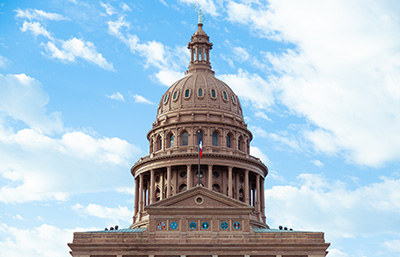The regular session of the 88th Texas Legislature kicked off Jan. 10 and runs through May 29. And while our state lawmakers are busy, so are we, monitoring and engaging in discussions regarding bills that would impact healthcare across the Lone Star State.
 Many of the bills we follow address issues such as price transparency, affordability and cost. Access, in terms of location and cost, has proved to be extremely vital over the last several years as we faced the COVID-19 pandemic.
Many of the bills we follow address issues such as price transparency, affordability and cost. Access, in terms of location and cost, has proved to be extremely vital over the last several years as we faced the COVID-19 pandemic.
And sometimes, things that sound simple are anything but.
For example, as filed, House Bill (HB) 1973 and its companion, Senate Bill (SB) 490, would prohibit hospitals from collecting payment from patients unless they produce an itemized statement.
Currently, most health systems, including ours, provide consumers with itemized bills upon request. But making this a state mandate for every patient, whether they want it or not, requires enhancements to technology, increased staff and more resources that will impact costs at a time when nearly one in 10 Texas hospitals are at risk of closure and nearly half operated in the red last year1. Mailing large documents that contain sensitive patient information can also raise privacy concerns.
Moreover, the gross price seen on itemized bills is rarely what hospitals are actually paid. In fact, through commercial contracts and government payors, systems such as ours are collecting about 27 cents on every dollar billed. Seeing this gross price only adds confusion for consumers on top of an already lengthy and complex hospital bill.
Texas Health strongly supports transparency and is compliant with state and federal price transparency laws that have come into play in the last two years. (More about our commitment can be found here.) Most health systems have already been scrambling to produce millions of lines of data on prices for all payors – at considerable expense during a global pandemic – in conjunction with myriad new reporting requirements.
Another problematic bill, SB 1275 and its companion HB 1692, as filed, would prohibit hospital outpatient payments, otherwise known as facility fees, for services provided in a hospital outpatient setting. Facility fees cover every piece of a patient’s care beyond a doctor’s bill including nursing care, lab technicians, diagnostics such as mammograms, colonoscopies, biopsies and more. Sixty-nine percent of hospitals in the state say they will have to close their outpatient clinics if they are unable to collect such payments.2
A recent iteration of the committee substitute for SB 1275 no longer bans all hospital outpatient payments and requires a study of the impact of facility fees. And while that’s a sensible next step, the latest version adds an extremely problematic provision that would prohibit hospitals from collecting payment for telemedicine and telehealth services at any hospital location, whether inpatient or outpatient.
Texas is made up of large cities, small towns and numerous rural communities. Telehealth has become an essential component of connecting our residents with high-quality care, no matter where they live. Rural facilities, especially, rely on telehealth services to provide vital care for patients who must see a specialist who may not be available in their area. This legislation would also reverse gains made in providing online access to mental health and substance use disorder care for children and adults at a time when 130 of Texas’ 254 counties are designated as mental health professional shortage areas.3
Active engagement in the public policy process is the social responsibility of all Texans. And at Texas Health, we know that helping facilitate the enactment of sound public policy strengthens our ability to achieve our Mission. You can learn more about Texas Health’s public policy priorities here.
Thank you for your support in keeping Texas a healthy place to live, work and play.
1 “The Financial Impact of COVID-19 on Texas Hospitals”, KaufmanHall (Fall 2022)
2 THA Survey of Texas hospitals, March 2023
3 Health Resources & Services Administration
